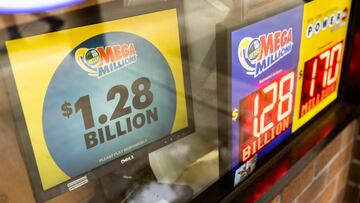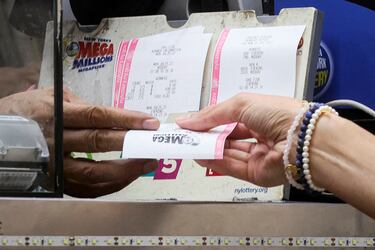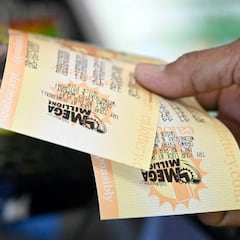How much tax does the $1.28 billion Mega Millions jackpot winner have to pay?
The quest for the second largest Mega Millions jackpot is over, as a single ticket in Illinois won the jackpot of more than $1.3 billion.


The quest to win the second largest Mega Millions jackpot would appear to be over, as a single ticket in Illinois won the jackpot of more than $1.3 billion despite no-one coming forward to claim their prize at the time of writing.
Just one ticket matched all six numbers in the 29 July drawing to win the $1.337 billion ($780.5 million cash) prize. The final value was higher than the estimate of 1.28 billion, based on actual sales.

This was the second largest jackpot in the 20-year history of Mega Millions, second only to the $1.537 billion won in South Carolina on 23 October, 2018. The jackpot began to roll on April 15.
“Congratulations to the Illinois Lottery for selling the winning $1.337 billion Mega Millions jackpot ticket,” said Pat McDonald, Director of the Ohio Lottery, who currently serves as Senior Director of the Mega Millions Consortium.
Jackpot tax to IRS
Before the money reaches the Illinois winner, the bounty will be subject to a 24% federal tax on gambling winnings as US tax residents must pay a top rate of 37% on annual earnings over $539,900, so you’ll be liable for the 13% difference between that and the 24% applied to gambling winnings.
The Illinois winner has two options in claiming his prize money, he/she can opt for an immediate cash lump sum–the most popular option among lottery winners–they’ll take home $747.2 million before taxes, according to Mega Millions.
Related stories
They also have the option to take the full $1.28 billion prize before taxes paid out over 29 years with 30 annual payments of $42.6 million, on average.

The best/worst states for lottery winners
Meanwhile, nine states - Colorado, Illinois, Indiana, Kentucky, Massachusetts, Michigan, North Carolina, Pennsylvania and Utah - have a flat income tax rate that’s mostly around the 5% mark. That means you’d have to pay up another $30m or so. The exceptions to that are Pennsylvania and Indiana, which would take 3.07% and 3.23%, respectively, from your winnings.

